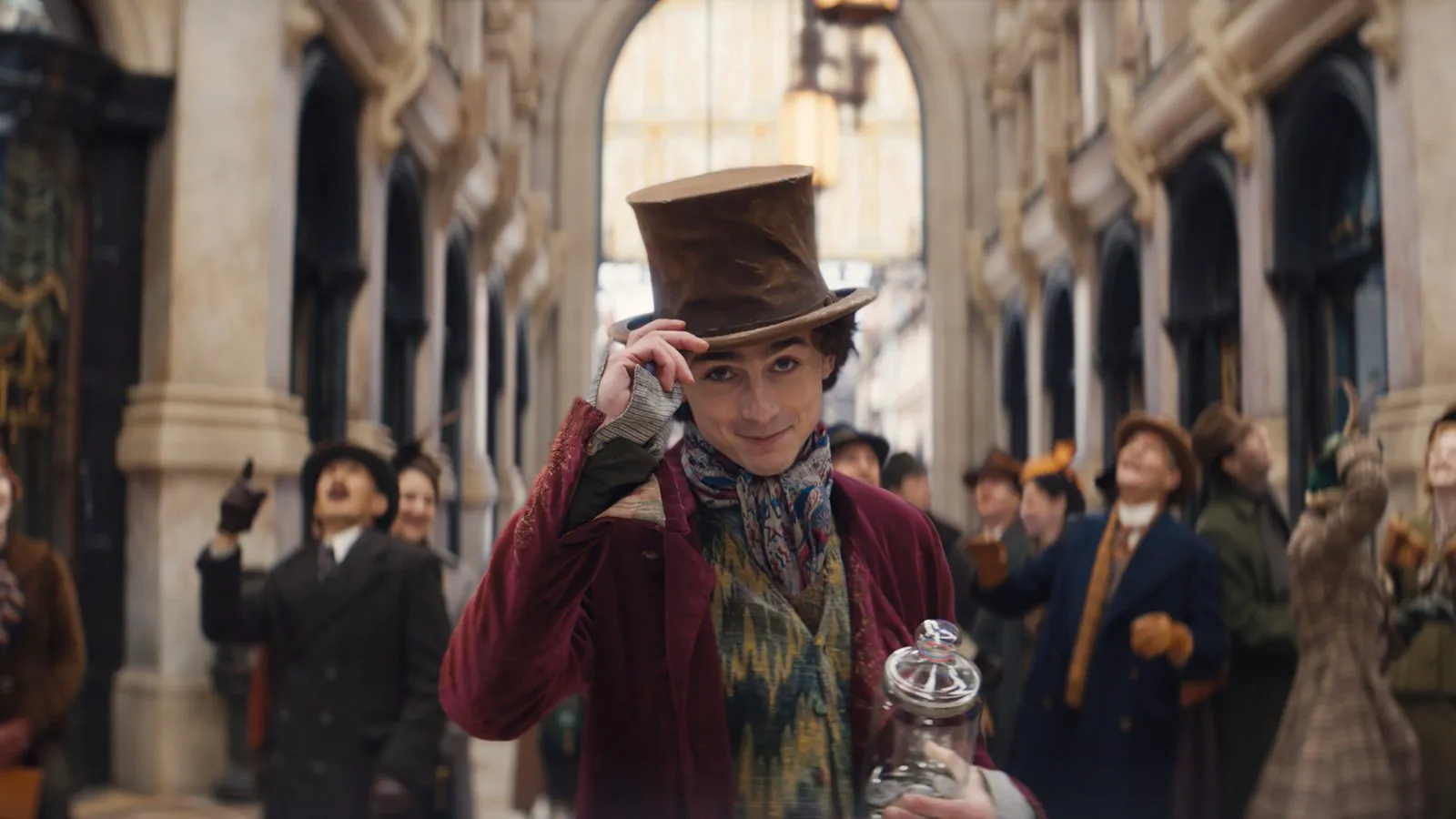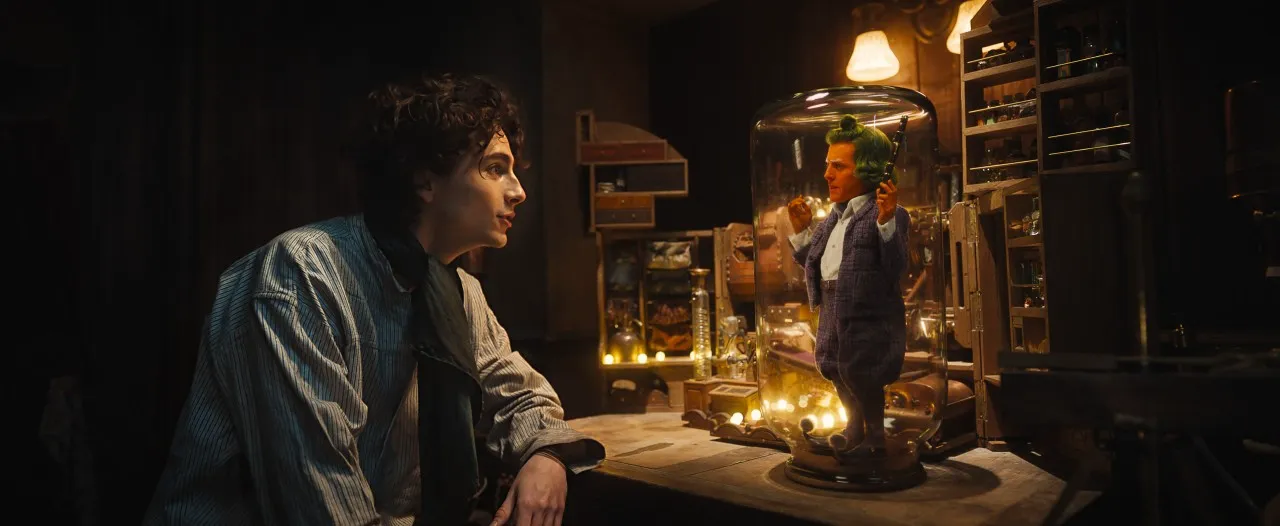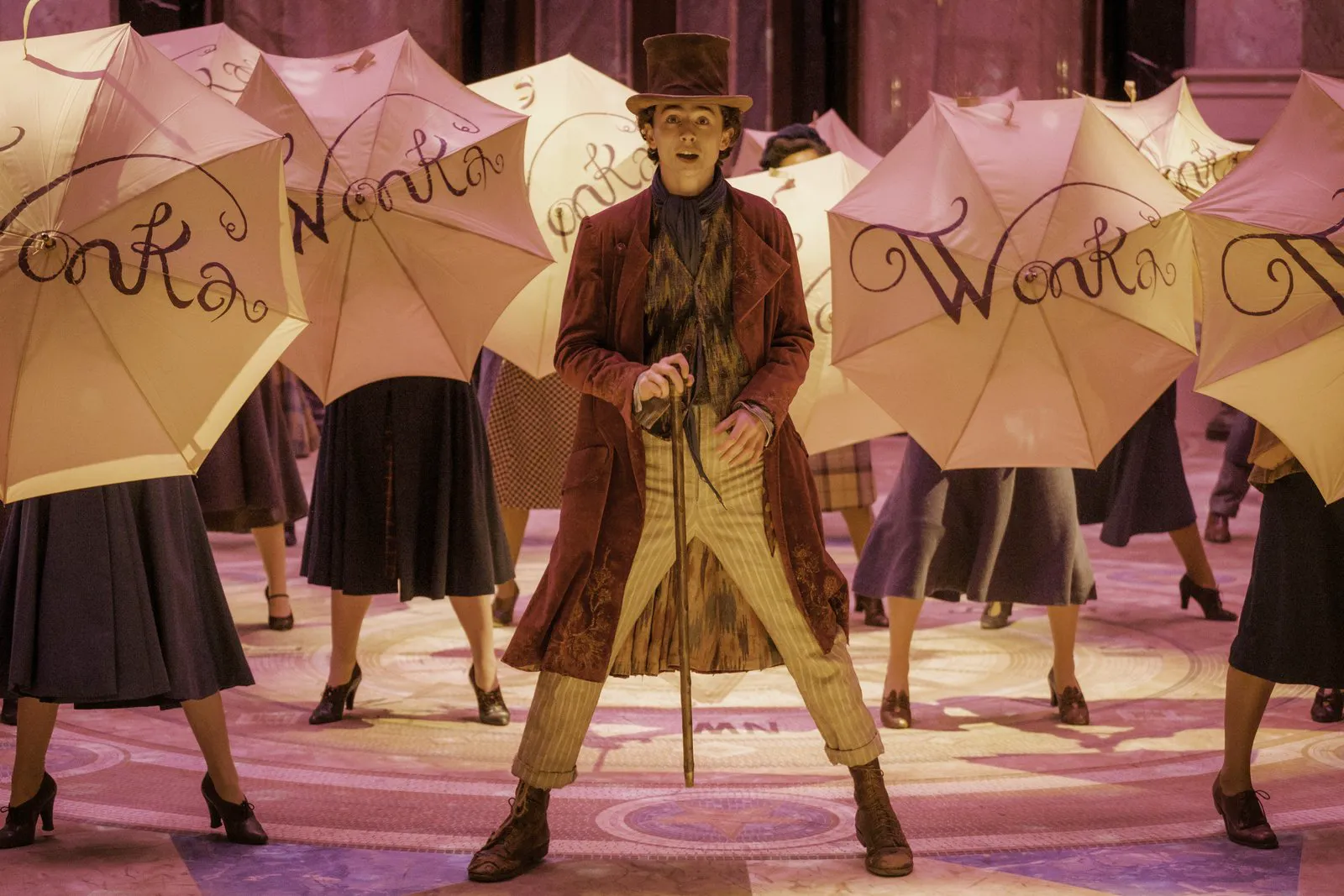A young man (Timothée Chalamet) arrives in a European metropolis at the beginning of the 20th century. He dreams of opening his own candy store. He is handsome, incredibly driven, but, unfortunately, extremely naive. His name is Willy Wonka, and he is bound to succeed.

Timothée Chalamet as Willy Wonka in a still from “Wonka”
Initial talks about filming the origin story of the famous chocolate factory owner began in 2016. Year after year, the project accumulated more and more details: Paul King, director of “Paddington,” as director, Timothée Chalamet as Wonka — by the end of 2023, seven years later, the film finally hit the screens. And although the star of “Call Me by Your Name” has the main and most striking role in the film, Olivia Colman or, for example, Hugh Grant shine in supporting roles no less. The latter even stated in an interview that his career “has entered the freak show stage.” The role of the green-haired pygmy Oompa-Loompa, of course, stands out from Grant’s recent series of campy tricksters — Fletcher from “The Gentlemen,” Greg Simmonds from “Operation Fortune,” False Fitzwilliam from “Dungeons & Dragons” — but the trend is obvious.
Wonka’s Early Struggles
Upon arriving in the big city, Wonka spends all his savings on unnecessary trinkets and is left penniless. All the young man has is an extraordinary talent for making chocolate and a suitcase with the necessary ingredients. Falling into debt bondage after rashly signing an agreement to live in a hotel, he meets other unfortunate souls in the basement laundry: the maid Noodle (Calah Lane), the accountant Abacus Crunch (Jim Carter), the comedian Larry Chucklesworth (Rich Fulcher), and others. Thanks to the resourcefulness of Wonka and Noodle, they all get the opportunity to occasionally leave the basement to finally open Willy’s chocolate shop, get rich, and buy themselves out of slavery.

Hugh Grant as Oompa-Loompa in a still from “Wonka”
Highlights of the Film
One of the main and most unexpected finds of the film is the interaction between Timothée Chalamet and Calah Lane; their characters, meeting completely by chance, become almost brother and sister, and with each passing minute, the sibling feelings become more believable. The episode at the zoo, where the two of them sneak in to get giraffe milk, is the best in the film. Both funny and touching (it turns out that milking a giraffe can bring you to tears), and exciting, the scene belongs to literally all genres at the same time, but remains within the framework of family cinema. Unfortunately, the visit to the zoo falls in the first half of the film, and Paul King does not rise to the set height again: all the musical numbers in “Wonka” are good, but only one is brilliant.

Timothée Chalamet as Willy Wonka in a still from “Wonka”
Chocolate Conspiracy
Another gem of the film is the integrity of the depiction of the chocolate conspiracy theory. Three city chocolate manufacturers are in a cartel agreement and do not allow a new player, Wonka, into the market. Their main office is located in a church basement, all the clergy are secretly chocoholics and cannot live a day without sweets. The same goes for the police; for many, chocolate becomes more valuable than money. The city is captured, but it is impossible to guess by whom and by what exactly. If the discussions about criticism of European migration policy in “Paddington” seemed far-fetched, then in “Wonka,” the conspiracy theory lies on the surface. However, it does not affect the family-entertainment part of what is happening on the screen.
Paul King has once again made a wonderful film for the whole family. Not as cozy as the first or second part of “Paddington,” well, Timothée Chalamet is not a plush bear. The musical is organically intertwined with the narrative, one perfectly complements the other. It is likely that “Wonka” will soon receive a sequel, because next year King will release the third chapter of the story about the bear cub from Peru, and then he can work on a new trilogy.